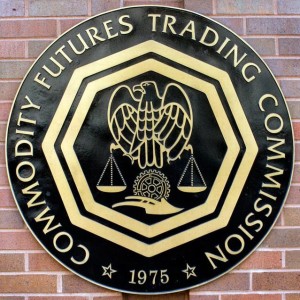 If you are watching cable news, you might be tempted to trade in the precious metals market.
If you are watching cable news, you might be tempted to trade in the precious metals market.
Companies like Monex, Lear Capital, and Rosland Capital have become consistent advertisers on Fox News, CNN and other cable news shows, promoting the benefits of trading in precious metals.
Precious metals- like gold, silver, platinum, and palladium- offer security and long-term potential, the commercials often say.
But the Commodities Futures Trading Commission’s (CFTC) head of enforcement, James McDonald, noted that the buyer should be ware.
“We’ve been receiving customer complaints about precious metal trading since the 1980s,” McDonald noted. “We’ve received more complaints in the precious metal market than any other commodity.”
McDonald made the statement as a guest on the podcast CFTC Talks hosted by Andy Busch, CFTC’s Chief Market Strategist.
Busch noted that the CFTC has done a series of investigation into wrongdoing in precious metals: “There was the 2004 Division of Market Oversight, Michael Gorem letter to silver investors, there was 2008 CFTC on large short trader activity in the silver futures market, there was the 2010 Commission public hearing to examine futures and options trading in the metals markets, and there was the 2013 public announcement of the end of a multi-year silver investigation into the silver markets.”
McDonald said that wrongdoing generally fell into one of two categories: fraud and market manipulation.
In the last year, the CFTC has brought high profile actions in precious metals in both categories.
In September 2017, the CFTC brought an enforcement action against Monex for a multi-million-dollar fraudulent precious metals scheme.
McDonald noted at the time: “Today, we announce the filing of one of the largest precious metals fraud cases in the history of the Commission. As alleged, the Defendants defrauded thousands of retail customers—many of whom are elderly—out of hundreds of millions of dollars as part of a multi-year scheme. Fraud in our markets, like that alleged here, undermines confidence, reduces transparency, and harms competition. As this investigation shows, we’ll work tirelessly to detect and prosecute fraud of the sort that’s alleged here.”
Monex had been a staple, advertising all over cable, cable news specifically and the action drew enormous attention.
Then, in January 2018, the CFTC filed complaints for spoofing in the precious metals market against three banks– Deutsche Bank, HSBC, and UBS- along with seven traders.
McDonald noted that just in the last year, the CFTC has filed seven complaints for market manipulation in precious metals.
The manipulation actions involved spoofing activity.
He said the market surveillance division within the CFTC was critical to identifying market wrongdoing. If that unit develops enough of a case, McDonald said, the case moved to an CFTC enforcement team.
Because much trading is now electronic, data analytics and technology is critical to many of these investigation, Busch noted.
While some cases come from the market surveillance unit, information also comes from customer complaints and whistle-blowers; Dodd/Frank established a whistle-blower office within the CFTC.
Whistle-blowers are eligible for 10-30% of any monies retrieved, if it’s more than $1 million, McDonald also noted.
“What I can say about the market from the enforcement standpoint is that we are working very hard to ensure that if there’s wrongdoing in any our markets- especially in the precious metals markets and especially in the precious metals market- that we’re ready to stop it, that we’re on the beat.” McDonald noted.









